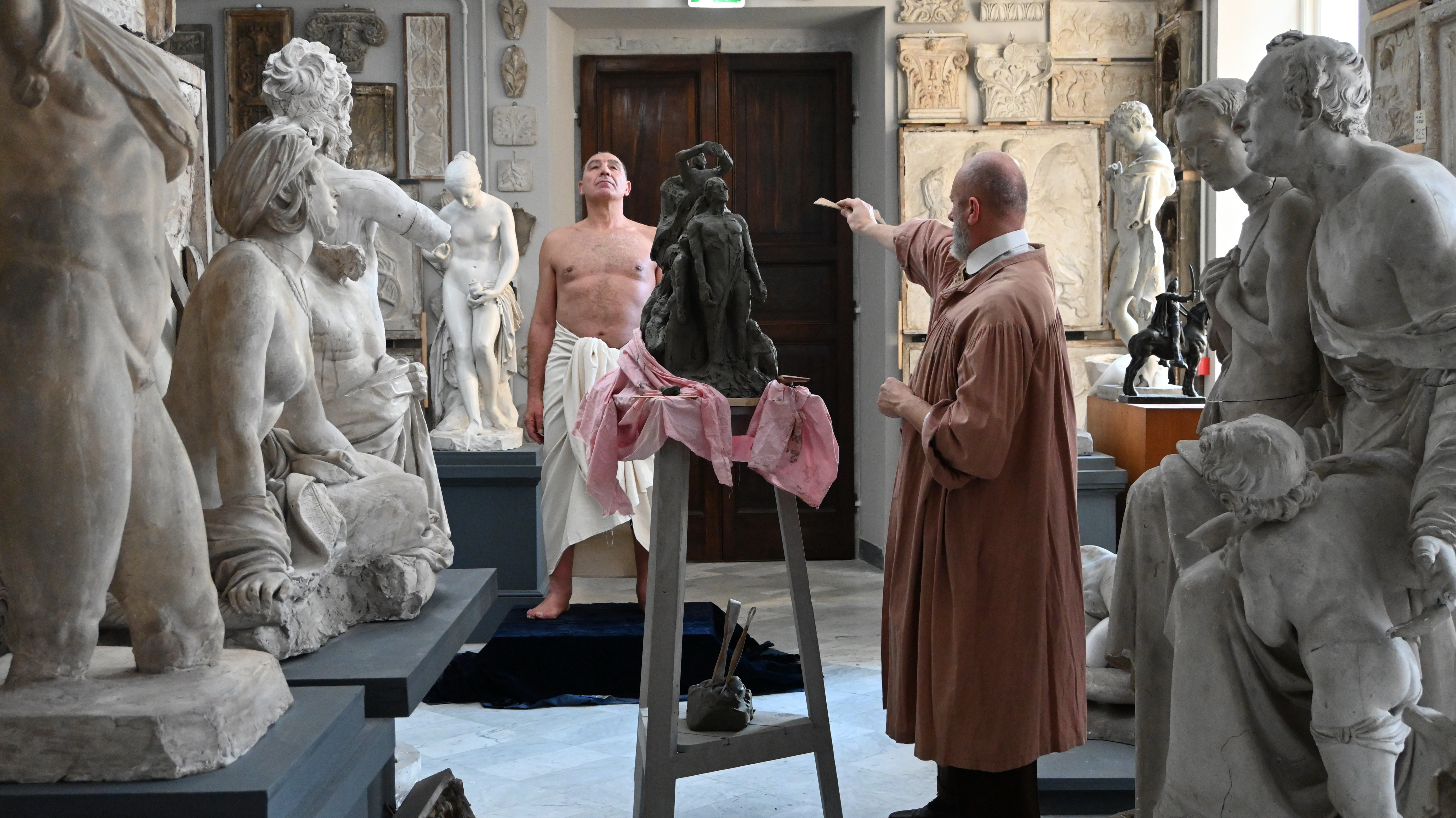Maciste, ai giorni nostri, al termine di una proiezione del film Cabiria di Pastrone organizzata dal critico e storico del cinema Steve Della Casa, si materializza uscendo dallo schermo!
Dopo l’iniziale smarrimento e confusione, i due iniziano un viaggio attraverso luoghi e ricordi del passato di Maciste, ricostruendo, con l’aiuto di autorevoli esperti, un percorso che porterà Maciste a scoprire la sua altra identità, ovvero quella del camallo genovese Bartolomeo Pagano il quale vide la sua vita trasformata in seguito al casuale e fortuito incontro col regista Giovanni Pastrone.
La storia di Bartolomeo Pagano è intreccio di diversi racconti. Storia del primo cinema muto italiano, quello che con Pastrone inventa nuove tecniche (il carrello, per esempio) e nuovi linguaggi, è storia dei primi “film sui film”, come dimostrano le pellicole della Itala Film che uniscono con leggerezza la messa in scena della macchina cinema al racconto vero e proprio, intrecciando i due piani con ironia e modernità. Ma è storia di un’Italia che scopre la nascita della grande industria e che permette l’affermarsi della prima “dittatura di massa”, la quale ricerca eroi e sentimenti che la rappresentino. È storia di “un uomo qualunque”, che viene strappato al pesante lavoro del porto e diviene simbolo della forza a servizio della giustizia sociale.
Per raccontare tutto ciò, si è scelto di ibridare il linguaggio proprio del documentario con quello della finzione. Richiamare sulla scena Maciste, farlo venir fuori dal film Cabiria, per fargli capire chi sia e dove si trovi attraverso un cicerone, collocherà la sua vita nell’oggi, in un mondo che di lui non sa più niente. Passato e presente sono intrecciati grazie alle immagini dei film della serie di Maciste, veri capolavori da riscoprire, e le immagini prese dagli archivi. Riscopriamo il cinema muto, oggi, per raccontare, grazie a scene di film muti girati con lo stesso linguaggio degli anni di Pastrone, scene della vita di Pagano. La sua storia, quella di un camallo di Genova che dall’oggi al domani viene proiettato su di una platea internazionale, diventando il primo supereroe italiano, diventa occasione per riflettere sul cinema delle origini, sul suo linguaggio, per riportare alla luce quel periodo in cui il cinema italiano è stato leader nel mondo, grazie all’innovazione e alla sperimentazione. Ci farà capire come fu proprio la riproposizione dello stesso schema narrativo, dello stesso “genere” che portò quello stesso cinema ad esaurirsi.
Che possa essere una lezione per l’oggi?
(Maurizio Sciarra)
